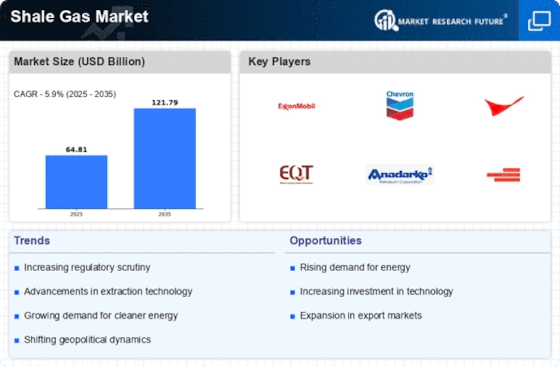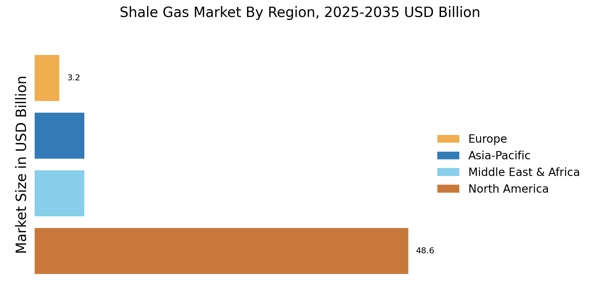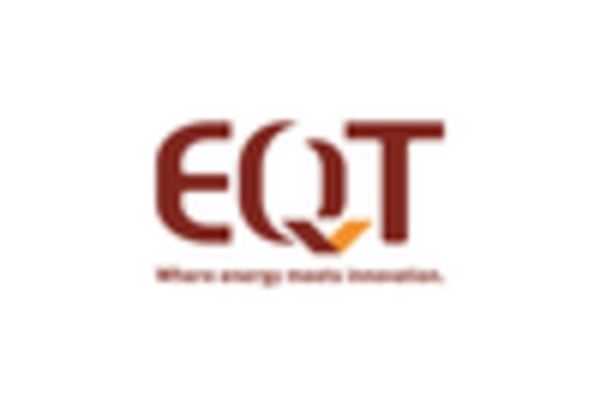The Shale Gas Market is currently characterized by a dynamic competitive landscape, driven by a confluence of technological advancements, regulatory shifts, and evolving consumer demands. Major players such as ExxonMobil (US), Chevron (US), and EQT Corporation (US) are strategically positioning themselves to capitalize on these growth drivers. ExxonMobil (US) has been focusing on enhancing its operational efficiency through digital transformation initiatives, while Chevron (US) emphasizes sustainable practices and carbon capture technologies. EQT Corporation (US), on the other hand, is concentrating on expanding its production capabilities in the Appalachian Basin, which is pivotal for its growth strategy. Collectively, these strategies not only enhance their competitive edge but also shape the overall market dynamics, fostering a landscape where innovation and sustainability are paramount. In terms of business tactics, companies are increasingly localizing their operations and optimizing supply chains to mitigate risks and enhance responsiveness to market fluctuations. The Shale Gas Market appears moderately fragmented, with a mix of large integrated companies and smaller independent operators. This structure allows for a diverse range of competitive strategies, where key players leverage their strengths to influence market trends and consumer preferences. In August 2025, ExxonMobil (US) announced a significant investment in a new digital platform aimed at optimizing its shale gas production processes. This initiative is expected to enhance operational efficiencies and reduce costs, thereby positioning ExxonMobil (US) as a leader in the digital transformation of the energy sector. The strategic importance of this move lies in its potential to streamline operations and improve decision-making through data analytics, which could yield substantial competitive advantages in the long run. Similarly, in September 2025, Chevron (US) unveiled a partnership with a leading technology firm to develop advanced carbon capture and storage solutions. This collaboration underscores Chevron's (US) commitment to sustainability and its proactive approach to addressing environmental concerns associated with shale gas extraction. The strategic implications of this partnership are profound, as it not only enhances Chevron's (US) sustainability profile but also positions the company favorably in a market increasingly driven by environmental considerations. In October 2025, EQT Corporation (US) launched a new initiative aimed at increasing its production capacity by 20% over the next two years, focusing on the Marcellus Shale region. This ambitious plan reflects EQT's (US) intent to solidify its market position and respond to the growing demand for natural gas. The strategic significance of this expansion is twofold: it not only aims to meet rising energy needs but also enhances EQT's (US) competitive stance against other major players in the region. As of October 2025, the Shale Gas Market is witnessing a shift towards digitalization, sustainability, and the integration of artificial intelligence in operational processes. Strategic alliances are increasingly shaping the competitive landscape, enabling companies to pool resources and expertise to tackle complex challenges. Looking ahead, competitive differentiation is likely to evolve from traditional price-based competition to a focus on innovation, technological advancements, and supply chain reliability. This transition suggests that companies that prioritize these elements will be better positioned to thrive in an increasingly competitive and environmentally conscious market.


















